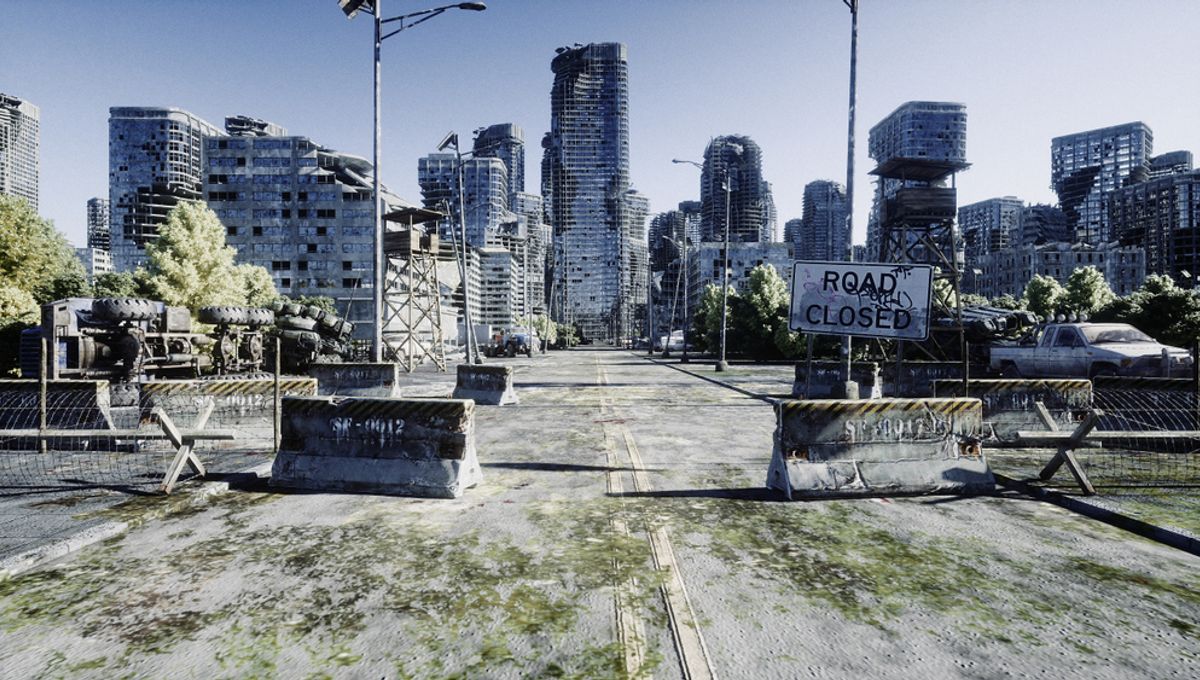
After two centuries of skyrocketing growth, a significant dip in humanity’s population is “inevitable”, according to a new paper penned by a leading population ecologist.
William E Rees, Professor Emeritus at the University of British Columbia, is the author of over 150 peer-reviewed papers on growth and socioeconomic development. Through the course of his decades of work, he’s even credited with coining the phrase “ecological footprint”.
In a new study, he returns with a fresh warning that our unsustainable consumption of resources and exponential population growth has “propelled modern techno-industrial society into a state of advanced overshoot”. As such, he believes that it’s “inevitable” the world will suffer a global economic downturn and shrinking of population this century.
It all comes down to the finite resources we relentlessly consume as a modern techno-industrial society in a bid to create continuous economic growth.
Rees argues that all animal species – Homo sapiens included – are naturally predisposed to grow and reproduce until their habitat reaches breaking point. Eventually, any animal will reach a point where its bountiful numbers result in excess consumption and habitat degradation, leading to food shortages, disease, or predation. This negative feedback hits the population, making it fall back below the long-term carrying capacity of the habitat. Eventually, the resources will replenish and the habitat will repair, starting the cycle again.
Humans have found themselves in an especially tricky situation, though. When humanity managed to harness the power of fossil fuels, particularly since the 19th century, it sparked a period of unprecedented food and resource abundance. A global population boom followed. In the past 200 years, the population increased from 1 billion to 8 billion.
Now, the supply of those fossil fuels is starting to run dry and won’t be able to replenish any time soon. Simultaneously, the prolific use of fossil fuels has altered the planet beyond repair.
“The abundance generated by fossil fuels enabled H. sapiens, for the first time, to experience a one-off global population boom−bust cycle. It is a ‘one-off’ cycle because it was enabled by vast stocks of both potentially renewable self-producing resources and finite non-renewable resources, including fossil fuels, which have been greatly depleted. No repetition is possible,” Rees writes.
“By choosing to industrialize, Homo sapiens unwittingly made a commitment to impermanence. We adopted a self-terminating way of life, in which the finite resources that enable our industrial existence would inevitably become insufficient to do so,” he added.
A bunch of other studies have foreseen a global population will decline in the next century. In 2020, a huge study published in The Lancet suggested that the global population will grow over the next few decades and peak in 2064 at around 9.7 billion people, before falling to 8.8 billion by 2100. Others have been more extreme, suggesting that the world’s population could slump as low as 6 billion people by the end of the century.
Rees believes the resource overshoot and resulting “population correction” could get messy. Left unchecked, the problem has the potential to bring mystery for billions of people in the form of “reduced goods production, massive unemployment, broken supply chains, failing GDP, declining personal incomes, over-whelmed social services.” In the worst-case scenario, a total societal collapse could occur. Either way, a decline in population is likely to follow.
“It is uncertain whether much or any of industrial high-tech can persist in the absence of abundant cheap energy and rich resource reserves, most of which will have been extracted, used, and dissipated. It may well be that the best-case future will, in fact, be powered by renewable energy, but in the form of human muscle, draft horses, mules, and oxen supplemented by mechanical water wheels and windmills,” he added.
“In the worst case, the billion or so survivors will face a return to Stone-Age lifestyles. Should this be humanity’s future, it will not be urban sophisticates that survive but rather the pre-adapted rural poor and remaining pockets of Indigenous peoples,” Rees continued.
So, what can we do about this grim fate facing us? Rees had previously argued that we could avoid flat-out disaster by reducing our ecological footprint and ending dreams of perpetual material growth. In his latest paper, however, he doesn’t sound so optimistic.
“One might expect that an intelligent social species would devise cultural overrides to rein in potentially dangerous expansionist tendencies on a finite planet. Rather remarkably, the opposite is the case,” Rees writes.
“In the best of all possible worlds, the whole transition might actually be managed in ways that prevent unnecessary suffering of millions (billions?) of people, but this is not happening – and cannot happen – in a world blind to its own predicament,” he writes.
The study is published in the journal World.
Source Link: A Big Population Crash Is "Inevitable" And It Could Get Messy, Scientist Predicts